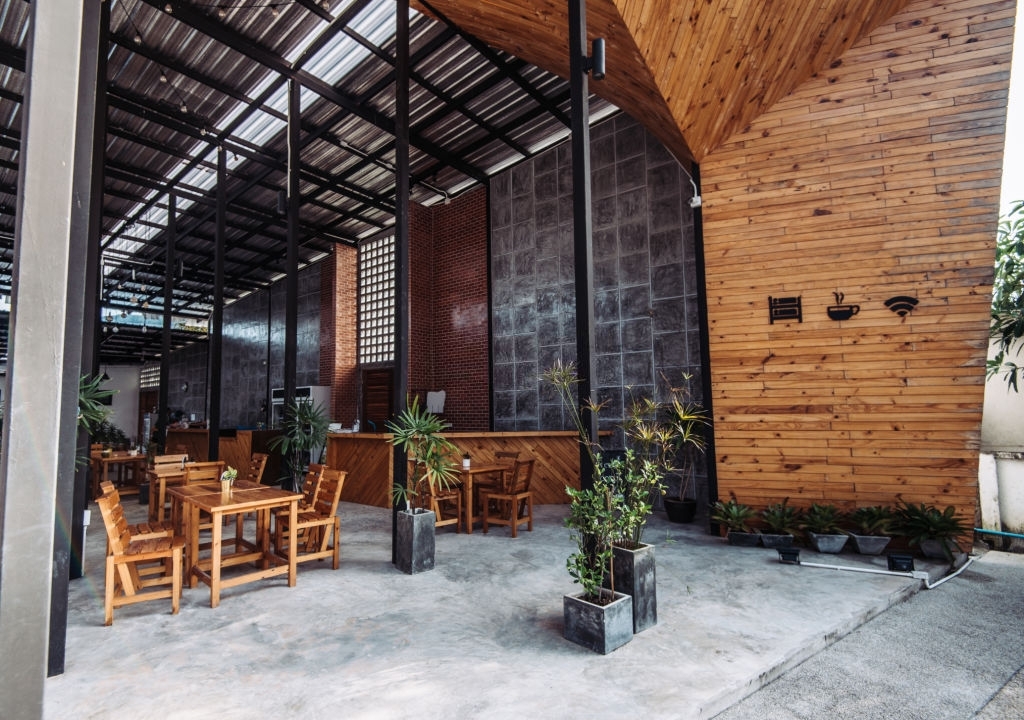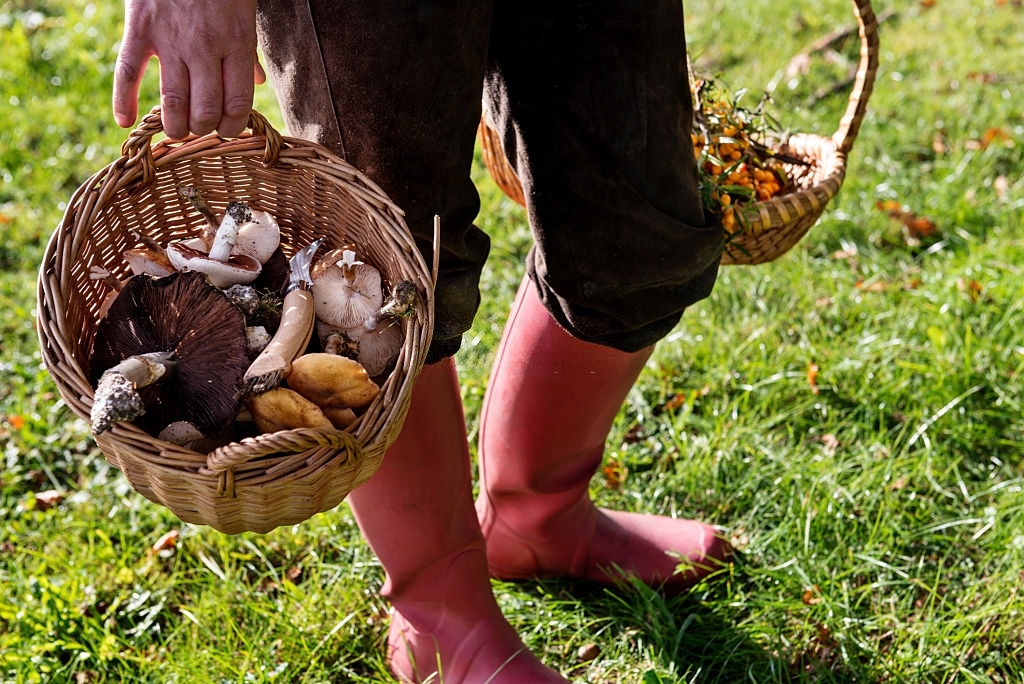One question I get a lot from food service students and chefs is, “Which food service jobs should I go into?”
I’ve always loved food. But after my culinary training, I struggled to find a career path that I enjoyed outside the kitchen.
The good news is that the world of food is vast. There are many ways to translate your passion for food into an awesome career without having to go the traditional route.
To help get you started on your food journey, I’ve rounded up a selection of 10 unconventional culinary careers to consider.
Food service jobs to apply for in 2022
#1 Culinary trendologist

A culinary trendologist (or ‘food trendologist’) stays up to date with all the latest food and beverage trends. Trendologists report and predict what the globe needs relating to food.
Menu design and recipe development are driven by people who research what people want, then engage food service firms to meet that demand.
Educational requirements and career information
A bachelor’s degree is required to work as a food trendologist in product development or applied research. Those working in advanced research will need a master’s or doctoral degree.
#2 Food advocate
Food advocacy is a rapidly growing trend. It involves watching our food sources and showing both companies and individuals how dangerous food production is to the environment.
Government institutions such as hospitals and restaurants need to hire individuals who can advocate for food rights and come up with realistic solutions to the health and nutrition problems we face.
Educational requirements and career information
Experience and dedication will most likely take priority here, as you do not need any formal qualification to become a food advocate.
People who want to become community food advocates should volunteer as often as possible with relevant organizations.
While the money may not be much at first, you can boost your earnings through speaking engagements, consulting, and book sales.
#3 Food lawyer
Food attorneys help consumers follow food laws and advocate for their access to good food while crafting legal structures for organizations and venues to comply with regulations.
This skill is acquired through years of practice and working in close cooperation with the food division.
Educational requirements and career information
This position requires a great deal of legal and regulatory data. To become a food law advisor, you should ideally have a graduate-level qualification in food law, food/consumer science, or food production.
For a career in food law, the simplest choice would be to seek employment with a law firm that deals with legal proceedings related to food.
#4 Product sourcing and buying
Sourcing and purchasing are a crucial part of every food service operation. A food buyer’s main responsibility is buying food and beverages used to satisfy the needs of a commercial enterprise’s customers.
Food buyers need to establish and cultivate their relationships with available suppliers such as wholesalers, retailers, and food importers.
Educational requirements and career information
Typically, many FMCG outlets require prospects to have at least a bachelor’s degree in commerce, procurement, accounting, or an associated field.
#5 Restaurant designer

Restaurant interior designers focus on the layout of dining places to improve the general appearance and experience of the establishment.
These designers produce the plans for the building together with the construction project manager or team.
Educational requirements and career information
You need relevant work experience to design establishments within the food industry as an independent consultant, such as restaurants, pubs, etc.
A degree like interior design or architecture combined with industry exposure makes you more appealing to food and beverage employers.
#6 Forager

Foraging or ‘gathering’ is the act of locating and harvesting wild food or animals. Popular food writer and author, Lynne Curry, speaks about her journey to becoming a forager on her blog.
Becoming a forager is not difficult – it takes a little time to study the fundamentals of foraging, then a lifetime of mastering the craft.
Wolfgat and Foliage are two popular restaurants in South Africa that use wild foods and the concept of sustainable foraging in their signature dishes.
Educational requirements and career information
Wild food foraging entails going out into nature, gathering wild plants or food, and choosing, picking, and consuming their most edible parts.
There are a few guides, courses, and excursions available online but the most critical aspect is to develop an understanding of your local area and the plants that grow there.
#7 Restaurant critic or food writer
Restaurant or food critics are writers who specialize in food and drinks. If you’re passionate about food and can analyze dishes and venues from a critical point of view, this is the perfect job for you.
For example, Jimi Famurewa, chief restaurant critic of the famous restaurant column Evening Standard, travels around the UK sharing his food and drink experiences with the world.
Educational requirements and career information
The first requirement of any food or restaurant critic is being able to describe your eating experience. You must think imaginatively and translate your culinary experiences into descriptive essays that tell and sell.
A degree in English, journalism or communications can aid you in becoming a good food writer, but food critics come from all walks of life. The most important thing is to practice writing regularly.
#8 Food anthropologist
Food requires harvesting, hunting, gathering, growing, storage, distribution, preparation, display, serving, and disposal. The anthropology of food specializes in defining the link between meals, social groups, and cultures across time and space.
Educational requirements and career information
Food anthropologists typically need a master’s degree or PhD. in anthropology. You will also need experience doing field work and research before you receive larger roles, such as a Qualitative Food Research Associate role or a tenured role at a university.
#9 Food consultant

Consultants usually work on short contracts with food service businesses and food producers to improve their offerings. Different niches within food consulting are dedicated to a specific skill set.
For example, a food safety consultant assists businesses with improving their food safety measures. They do this by ensuring they have the correct certifications and licenses in place, and maintaining overall regulatory compliance.
Educational requirements and career information
To become a food consultant, you’ll need a tertiary qualification such as hospitality management, culinary arts, nutrition, or business. Training should be completed by an accredited institution.
#10 Research, development, and test kitchens
Many food professionals work in test kitchens, developing recipes and products consumed by millions of people daily. Products we purchase from grocery stores have been created, trialed, and tested in research kitchens by research and development chefs.
Educational requirements and career information
Larger food manufacturers may prefer candidates with a bachelor’s or master’s degree related to food science or nutrition, plus years of industry experience.
3 lessons food service jobs taught me
Being in the kitchen has developed my character immensely and kept me humble and persistent throughout my life. I’ve learned three lessons during my journey into food which I hope will help you along with yours.
Lesson #1: Perfectionism sets you up for failure
I am a perfectionist, and over the years, I’ve found it to be more destructive than productive. For the longest time, I found myself trying to cook, plate, or shoot dishes perfectly.
In the end, I’ve learned that ‘perfect’ is the enemy of ‘done,’ and that you learn faster by shipping stuff quickly than polishing them endlessly.
Lesson #2: Small steps make a big difference
Take your time. Cooking and baking combine small steps and techniques to reach a greater outcome. A recipe requires you to break things down, and the final dish may seem unattainable, but a repeatable process improves your work.
Don’t worry about how long it will take you to get there – just focus on the next small step and recognize how far you’ve come.
Lesson #3: Practice endlessly and remain a student
“We are what we repeatedly do. Excellence, then, is not an act but a habit.” – Will Durant
You get better at something the more times you do it, which is something I first started selling food and meal preps. The only way to win trust was to repeatedly produce quality meals and even better service. Over time, I was able to master the finer details of my craft.
Find the perfect food service job today
The food industry plays an important role in our daily lives, but the above options are only a small part of the culinary world.
There are many more food and beverage roles you can specialize in, such as:
- Beverage manager
- Flavourist
- Chocolatier
- Culinary lecturer
- Food stylist
- Winery manager
And hundreds of other culinary career job titles. The opportunities are endless, so pick your path and have fun with it.
In health and happiness,
Chef Lee